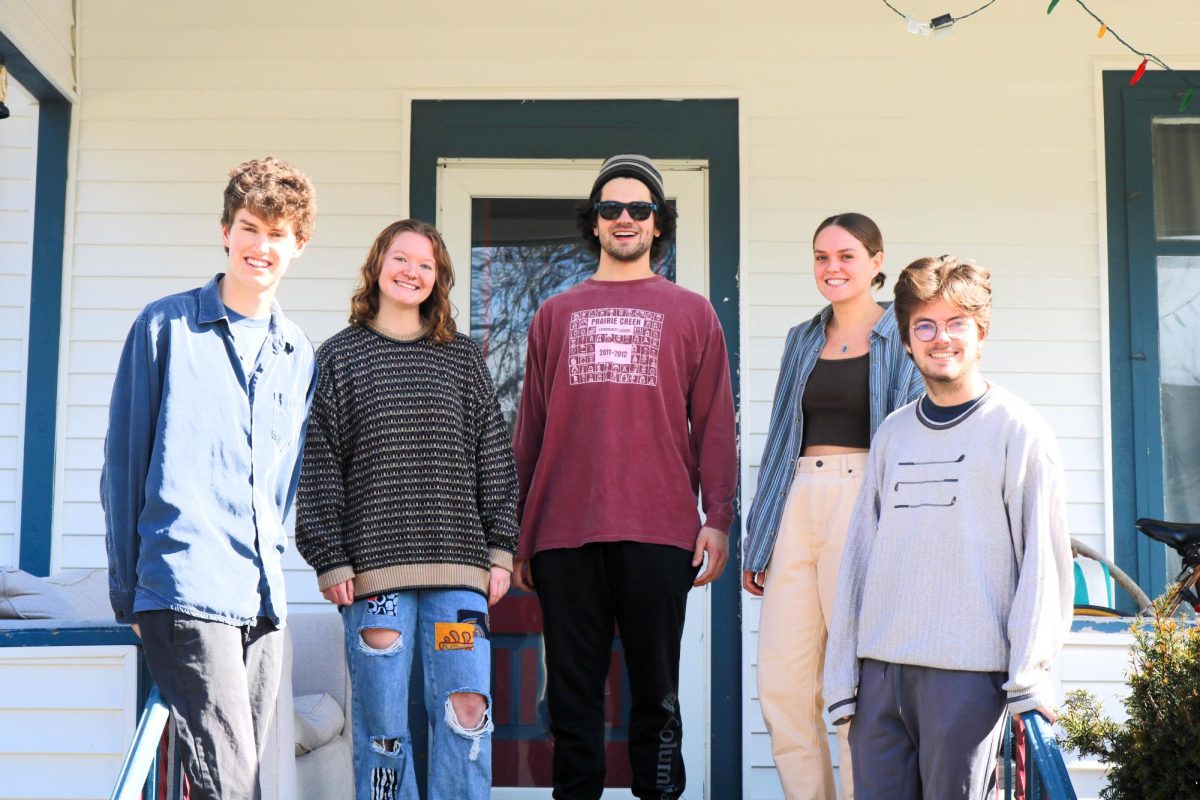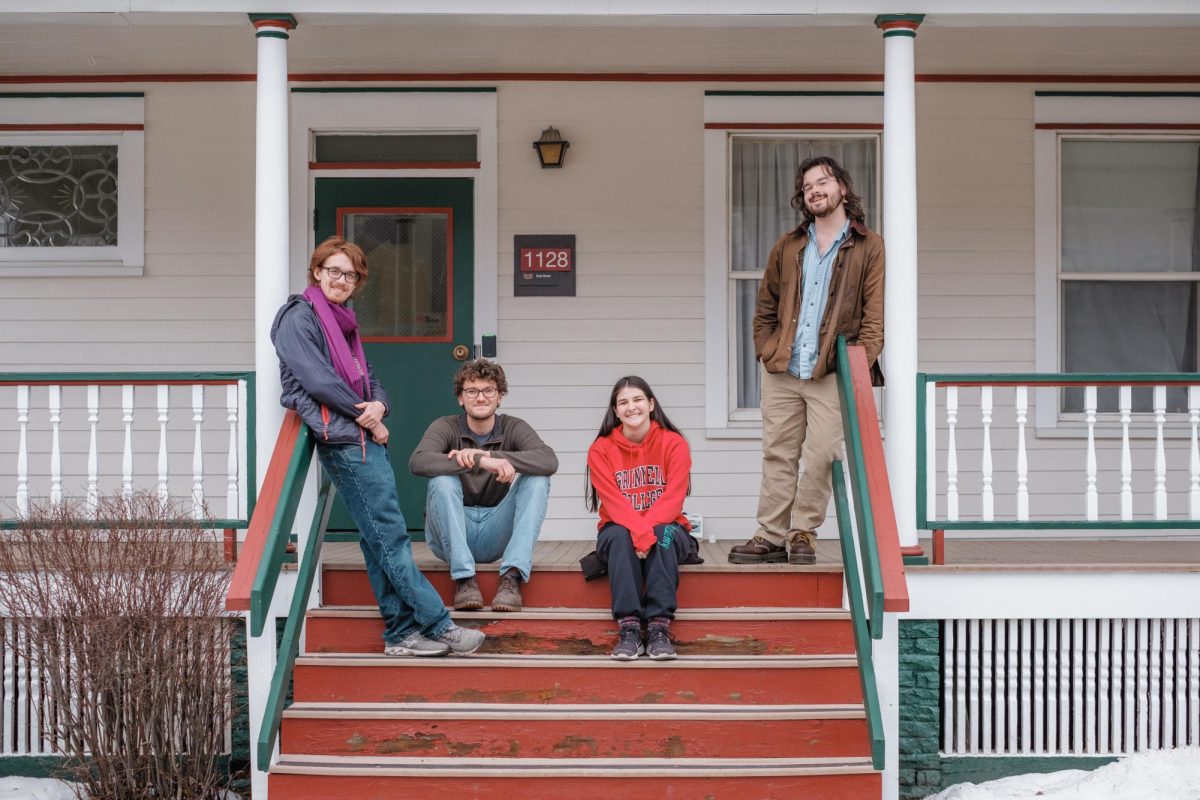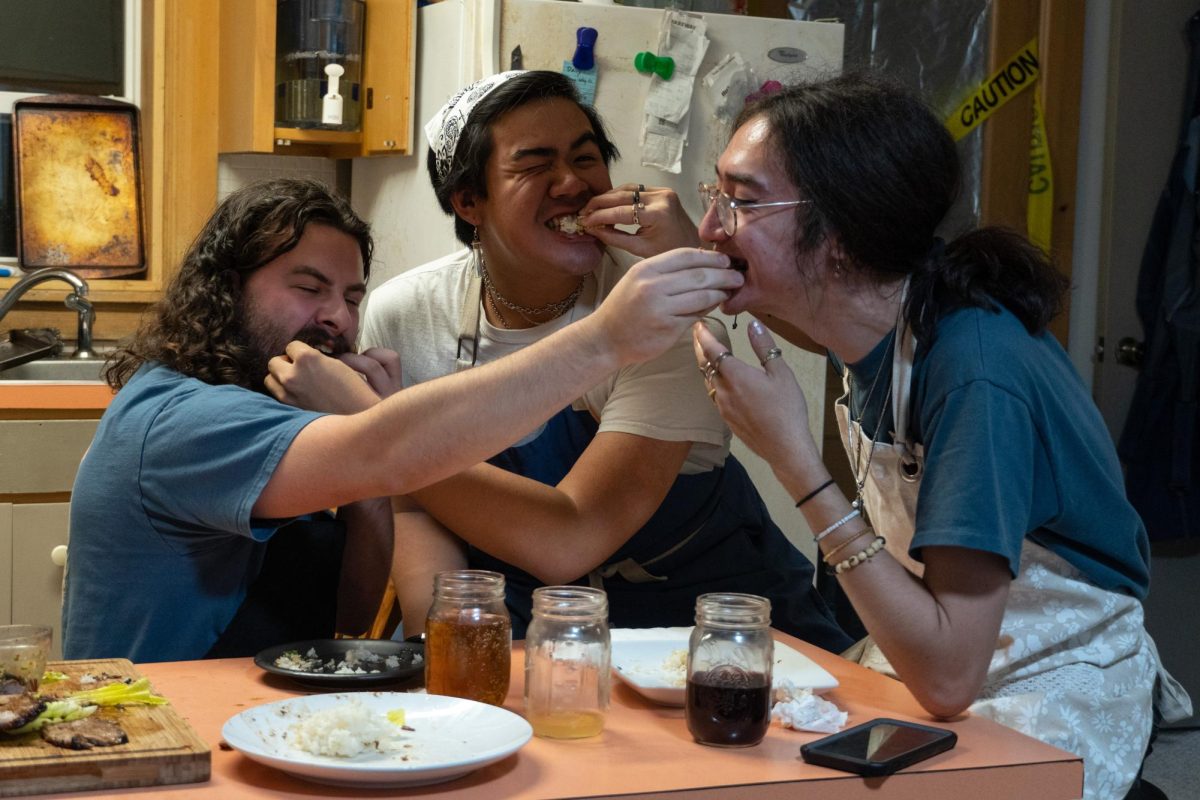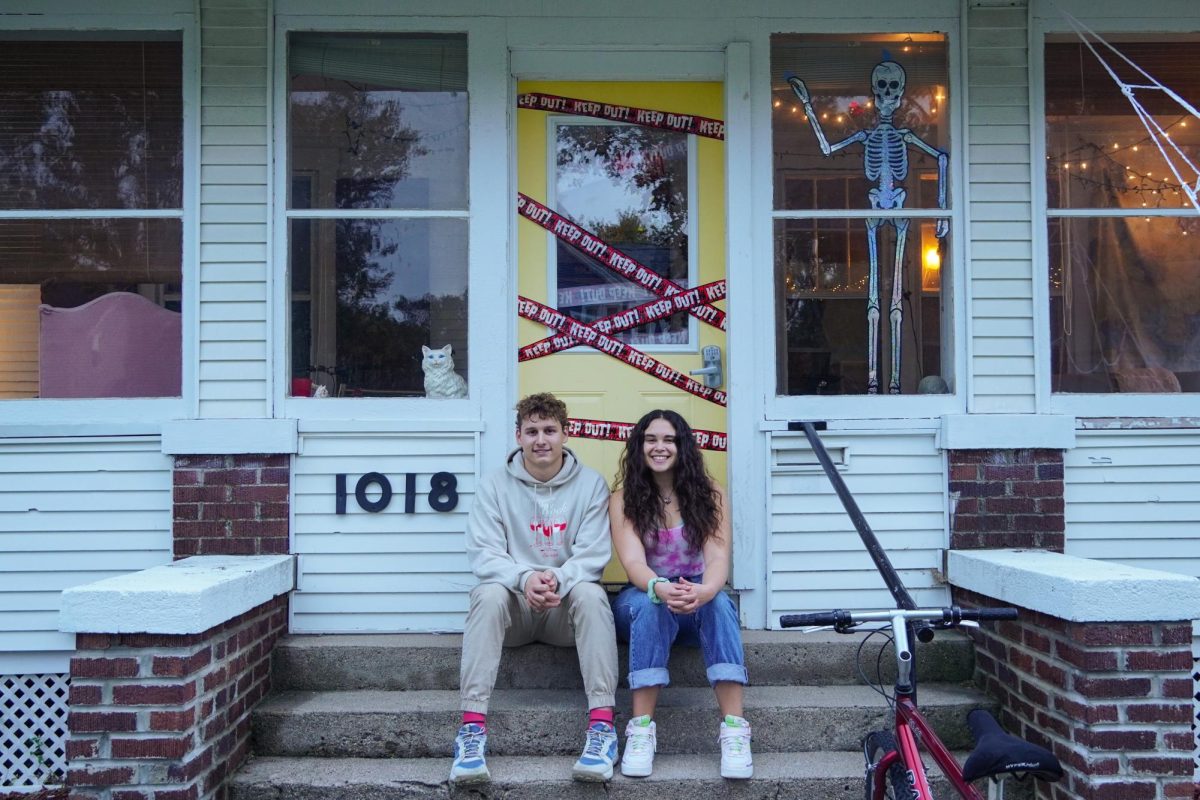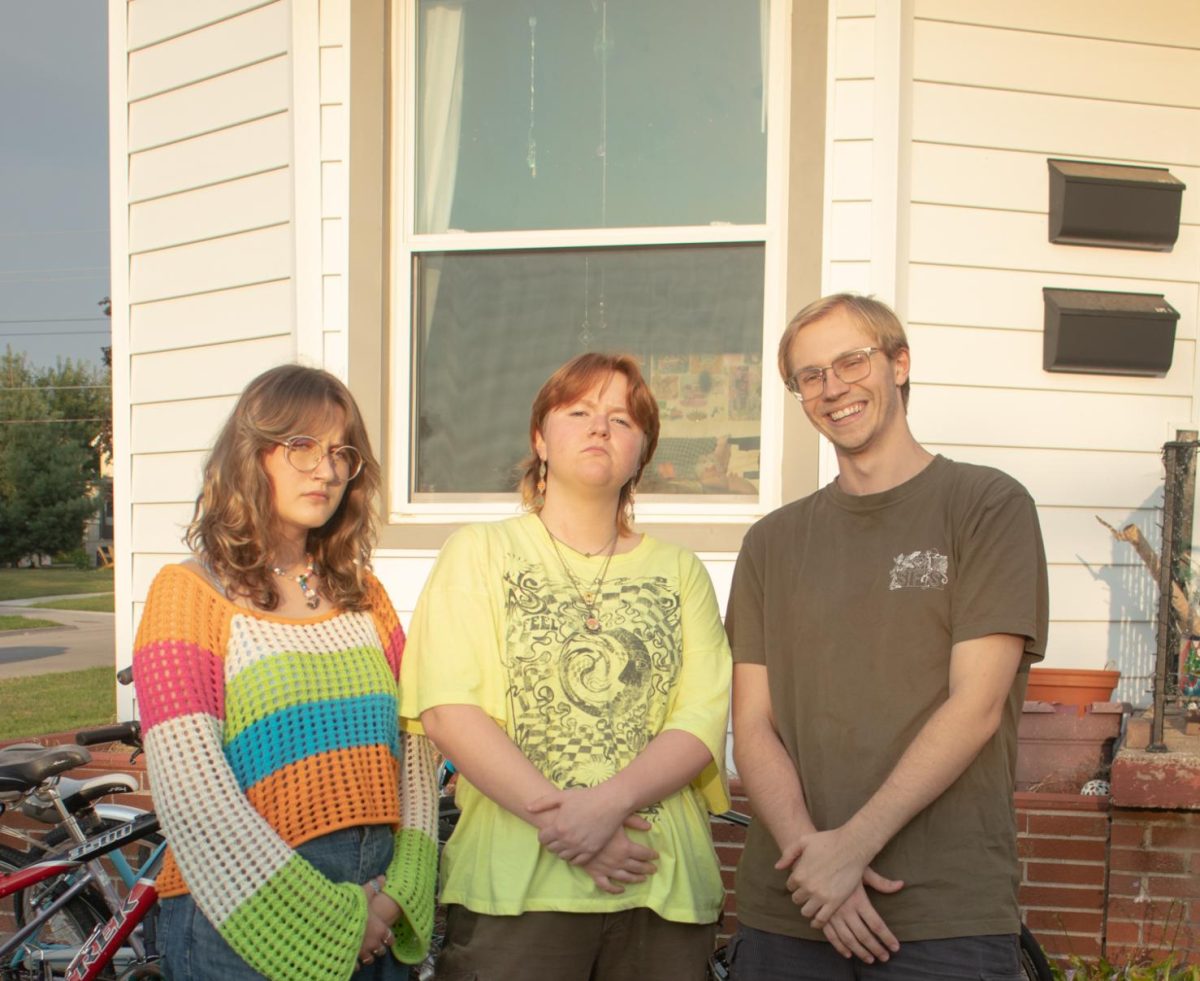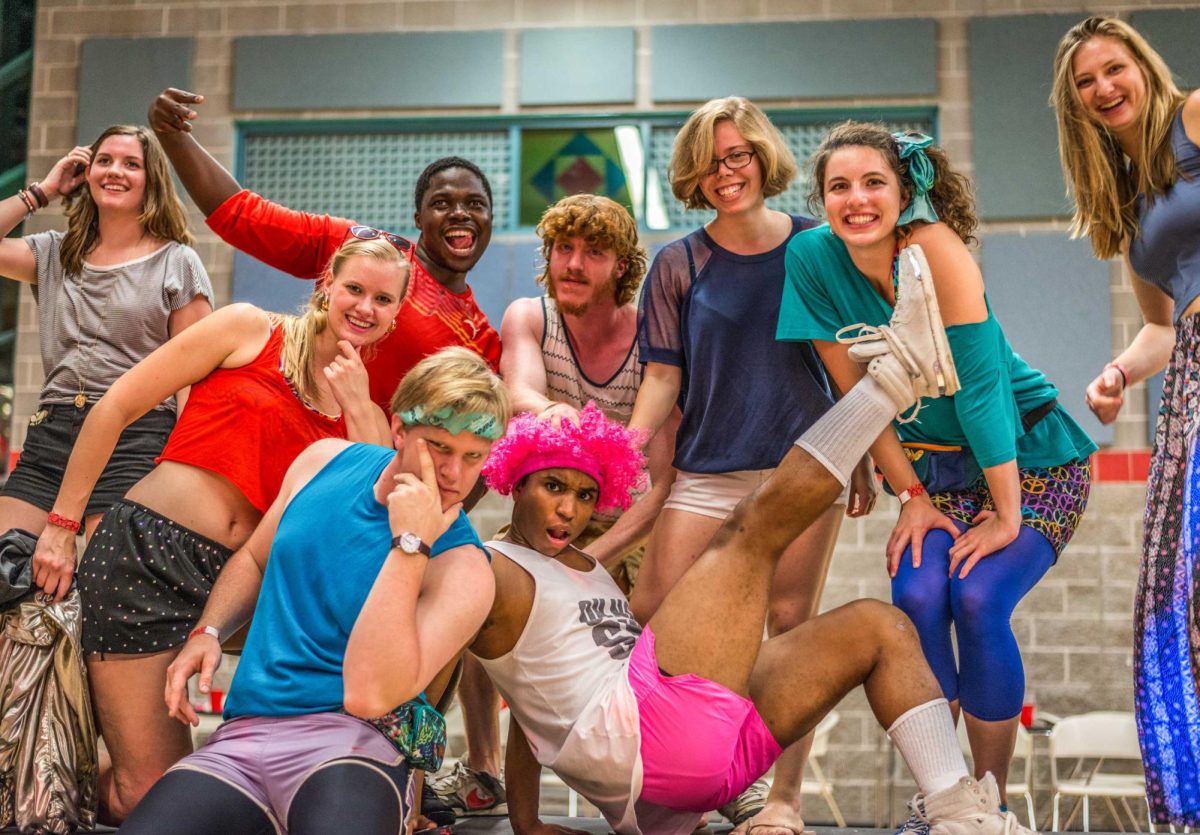Steve Yang, Features Editor
yangstev17@grinnell.edu
Russian House is, simply speaking, a celebration of all things Russian: the food, the folklore and the family spirit. Located at 1217 Park Street, its eight human residents—Holly Barton, Kieran Connolly and Sam Burt, all ’17, Anastasiia Morozova, Mari Ivica, Kavya Shah and Ella Nicolson, all ’18, the language assistant, Liana Battsaligova and one feline resident—M&M the tabby—embody what they deem very Russian characteristics. They are strong, serious and beautiful, but also laidback and humorous.
Given the unofficial nickname of “The Red One” and “The Russkiy Dome,” Russian House celebrates all of the Russian holidays. The residents take pride in their cultural identities, for days both big and small. Past celebrations at the house have included the Red and White party on Nov. 7 for the anniversary of the October Revolution, various movie nights and carving pumpkins.
“We celebrate holidays, all of the Russian holidays,” Battsaligova said. “[This week was] Soviet Army Day and Men’s Day, but we also have an International Women’s Day.”
These holidays are celebrated with copious amounts of traditional food and drink, including Russian dumplings known as pelmeni and uncertain amounts of vodka. Other specialties include blini, or Russian crepes, pierogis and vodka cake.
“We always joke about drinking vodka. Nobody drinks vodka, but everybody jokes about drinking vodka,” Barton said. “I drink more schnapps, though.”
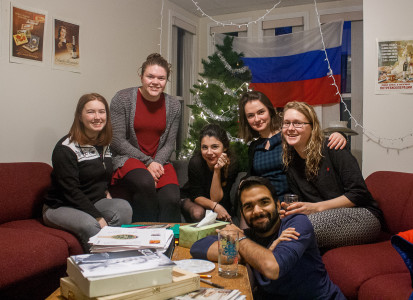
Photo by Minh Tran.
The house also prepares food every Tuesday at 6 p.m., which was originally a tea time that became a mealtime. The occasion is available to the whole campus community, although the residents said that few people usually drop by.
“We have so much tea,” Barton said. “And we have the best food!”
In addition to the food, the house’s kitchen is incredibly well stocked with kitchenware, so much so that the Gourmet Cuisine Society will use the house’s kitchen for its events in the spring. Cabinets are stuffed to the brim with various colanders, cheese graters and mixers. A few more commonly used utensils, however, are noticeably missing: forks and spoons.
According to Connolly, “Glinka,” a made-up fairy, who steals spoons at night, is the culprit.
Morozova pointed out that Russian folklore doesn’t actually have fairies but the plight of upsetting a domovoi, a protective house spirit, and losing one’s spoons to the spirit is very real.
“My grandma sets up a whole treat stash around the fridge so they don’t get mad and steal your spoons,” Morozova said.
Although house residents can’t keep spoons, they can keep pets, in this case Barton’s two rats and her cat, M&M. The cat is biologically male but goes by “she” because, as Barton explains, “she has a penis, but she doesn’t care what pronouns you use because she has no concept of gender or the English language.”
To complete the festive atmosphere, paper snowflakes adorn the kitchen ceiling and Christmas decorations are placed in different parts of the living room. These, the residents note, are relatively unintentional, but provide good vibes and occasionally vital lighting for the house itself.
“We still have a Christmas tree up. One of our house residents decided to keep it,” Connolly said. “As for the Christmas lights in the living room, every single light was out at one point, so those were our replacement.”
At the same time, house spirit is always stoked by the fires of competition with German House nearby. The residents of Russian House built an unofficial “Berlin Wall” in November, continuing the tradition of geopolitical jokes between the two houses. Bart added that about five years ago a student built a shack between Russian House and German House and called it “Polish House.”
“Not only was it an issue with [Facilities Management], it was offensive to international students and people from Poland,” Bart said. “Russian House and German House kept stealing it from each other.”
In the spring, Russian House will participate in the tradition of “progressive eating,” where every Language House cooks their traditional food and partakes in one another’s creations. Russian House residents will also celebrate spring on March 5 in Bucksbaum, a “Russian Fat Tuesday,” according to Battsaligova.
“It’s Mardi Gras for Slavic people,” she said.
“We burn Granny Winter,” Bart added.


















































